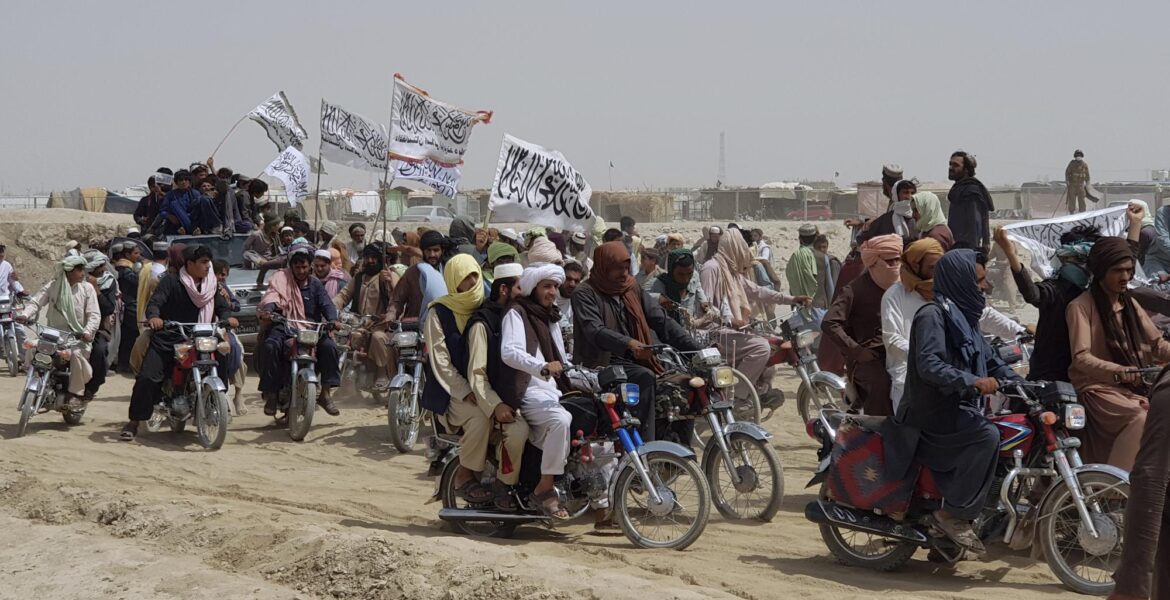
The United States and North Atlantic Treaty Organisation (NATO) forces entered Afghanistan in October 2001 with twin objectives: to rid this country of global terrorism and make it democratic and progressive country.
The campaign for the first objective ended in a humiliating disaster for the US whose soldiers, after 20 years of fight, decamped from Afghanistan in the dead of night leaving behind their weapons to be looted by aggressive Taliban who they had dislodged from power 20 years ago.
This was also the end of democracy and progressiveness which had begun taking root.
After losing thousands of lives and trillions of dollars in these 20 years the US /NATO lost on both the objectives: fight against global terrorism and making Afghanistan & democratic and progressive country.
A major cause of this failure was Pakistan which charged a big fee to join the US-led war against global terrorism but helped those who were the target of this war.
The purpose of this article is not to repeat Pakistan’s well-known duplicity during this war but to point out that the single factor that failed the US aims and objectives in Afghanistan was to cowardly succumbing to Pakistan’s firm No.
The NATO Generals could not check terrorism in Afghanistan without the right to chase terrorist to their safe havens. Pakistan said it could not give this right because that would compromise its geographical honour. Thus terrorists enjoying safe havens in Pakistan, the NATO forces failed to terrorism in Afghanistan. The result was August 15.
But, what about Afghanistan’s own geographical honour? On April 16, the Taliban government said Pakistan had bombarded Afghanistan’s province of Khost and Kunar, killing at least 47 persons including 20 children. While the Taliban government is protesting loudly, Pakistan is keeping quiet.
It is said Pakistan has retaliated against the increasing number of terror activities against it after the Taliban took over power in Afghanistan on August 15,2021. Pakistan’s main grouse is against Tehrik-e-Taliban Pakistan (TTP) which is a Pakistani terrorist outfit but has been operating from mountains of Afghanistan near Pakistan’s border since 2014. The TTP is a target of Pakistan’s Army.
But who has authorised Pakistan to conduct cross-border bombing of civilian areas? Taliban’s Vice Army Chief Hajji Mali Khan told the Afghan service of voice of America that “Americans also had the rife power that Pakistan has, but we defeated America?
Taliban’s spokesman Zabiullah Mujahid reflected that same thinking among the Taliban. Talking to BBC, he said Pakistan should be careful “If we can fight America, we can also stand up to Pakistan”. He said: “Pakistan should not test our patience, otherwise the Taliban will give reply”.
Pakistan’s Foreign office did not react to this but said attacks on Pakistan had increased. As if to justify bombing of Khost and Kunar, it said the terrorists were using the Afghan soil to target the Pak Army.
It accused the Taliban government of not making border safe. But what border? What Pakistan calls border (the Durand Line) the Taliban reject. How can the Taliban safeguard something which they do not accept? That the Pakistani jets forayed into Afghan territory to bomb on April 16 raises questions about its own commitment to the Durand Line.
But, besides the Durand Line, an irritant forever, there is something else that ails the Pakistan-Taliban relations. Perhaps it is their respective quiet study of each other. In the view of Pakistan, the Taliban is raw and rustic bunch of people who can be exploited but can’t be treated as equals. Pakistan may consider master-orderly equation between itself and the Taliban the best relationship.
It was because of this mentality that many people in Pakistan said that now after their victory in Afghanistan the Taliban could be used against India in Kashmir. Pakistanis could not see that the Taliban had developed a world vision in these 20 years.
Pakistan should not overlook the fact that in these 20 years, the Taliban have seen the world and learnt a lot about diplomacy. It has also seen duplications diplomacy of Pakistan, who tears in eyes, pleads with Muslim countries to recognise the Taliban government but would not do that itself.
Petros Aramidis is a geopolitical analyst based in Athens.
No comments:
Post a Comment